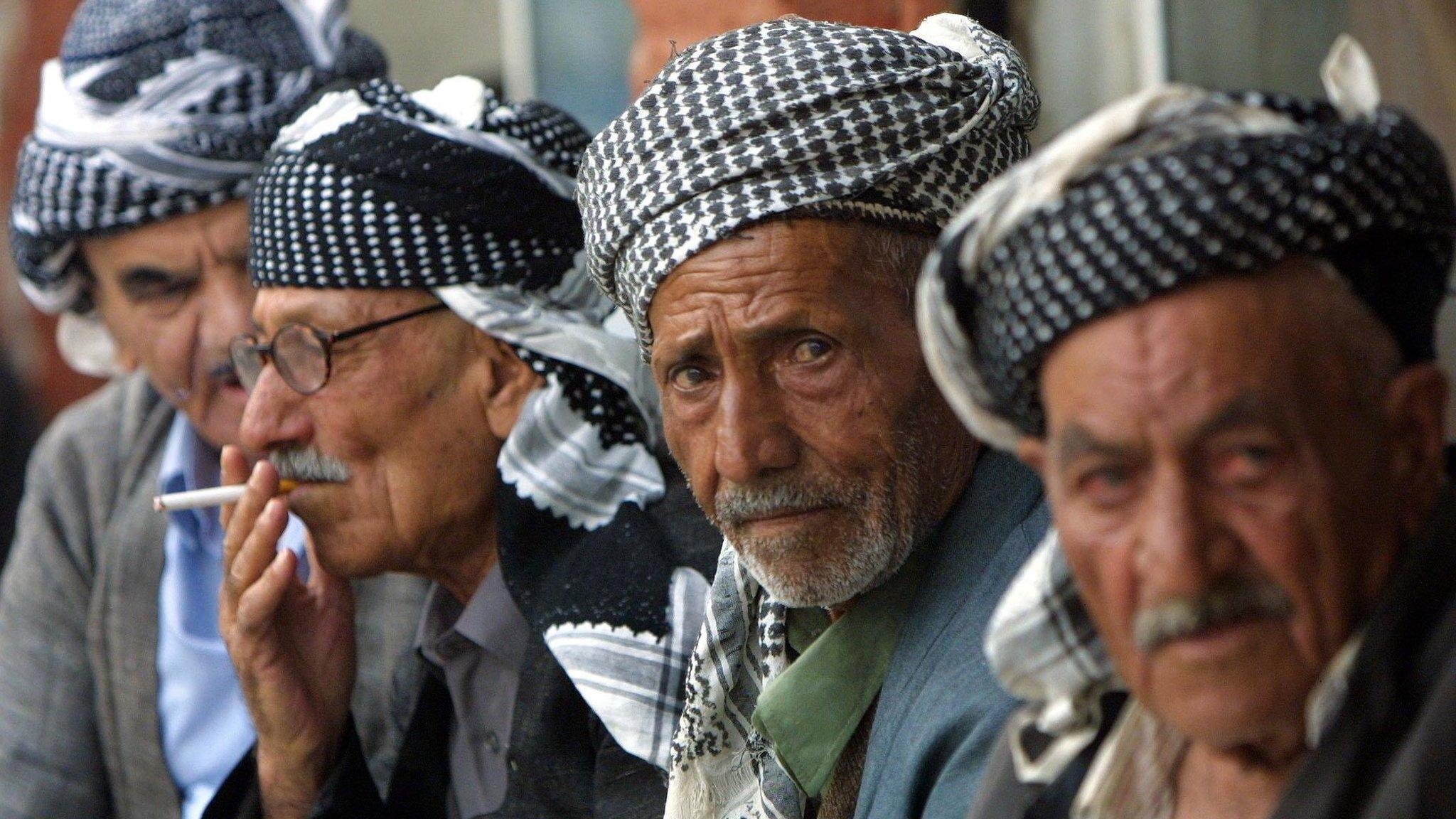Syria war: Afrin looted by Turkish-backed rebels
- Published
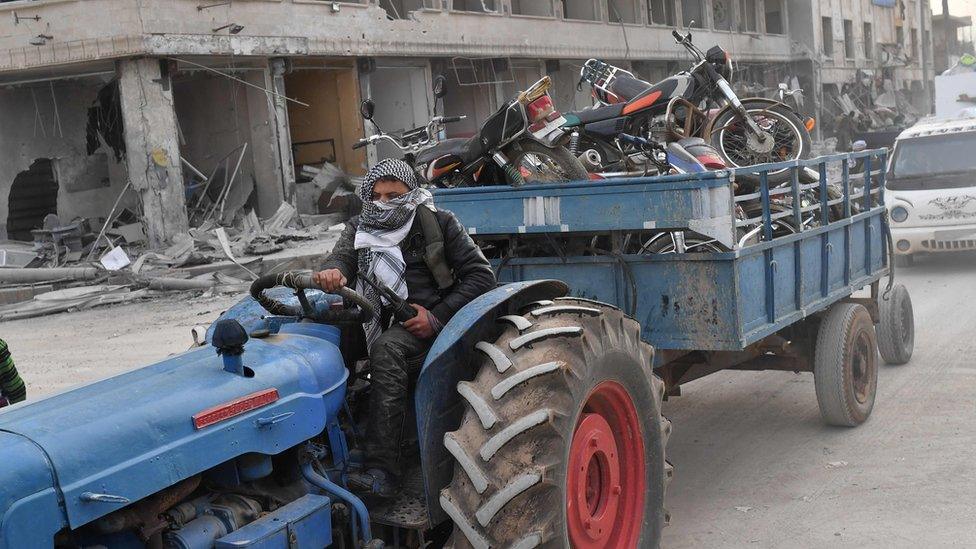
AFP news agency journalists said rebels drove looted goods out of the city
Turkish-backed Syrian rebels who seized the northern Syrian city of Afrin from a Kurdish militia on Sunday have been looting properties, reports say.
A UK-based monitoring group said shops and military and government facilities had been raided.
A rebel commander blamed "thieves" for the looting and said a unit had been set up to prevent further incidents.
Later, Turkey's president vowed to expand its military campaign to all Kurdish-held border areas to the east.
"The military operation will go on until the terror corridor through Manbij, Ain al-Arab [Kobane], Tal Abyad, Ras al-Ain, Qamishli has been wiped out," Recep Tayyip Erdogan said in a speech in Ankara.
Mr Erdogan described the fall of Afrin following a two-month offensive as a "comma" in its efforts to counter the Kurdish People's Protection Units (YPG) militia and added: "God willing a full stop will come next."

The Turkish government says the YPG is an extension of the banned Kurdistan Workers' Party (PKK), which has fought for Kurdish autonomy in south-eastern Turkey for three decades, and considers it a terrorist group.
The YPG denies any direct organisational links to the PKK - an assertion backed by the US, which has provided the militia and allied Arab fighters with weapons and air support to help them battle the jihadist group Islamic State (IS).
The Syrian rebels said they met little resistance when they advanced into the centre of Afrin before dawn on Sunday. Many YPG fighters were believed to have withdrawn along with the estimated 220,000 civilians who fled the city last week.
Footage shows destroyed statues and flags being raised in the centre of Afrin
Pictures showed soldiers flying a Turkish flag from a building, and rebels tearing down a statue of the Kurdish hero Kawa Haddad.
AFP news agency journalists in Afrin also saw rebels break into shops, restaurants and houses, and leave with food, electronic equipment, blankets and other goods. They were then transported out of the city.
The UK-based Syrian Observatory for Human Rights (SOHR), which monitors the conflict in Syria through a network of sources on the ground, said rebels had been "pillaging private property, political and military sites and shops".
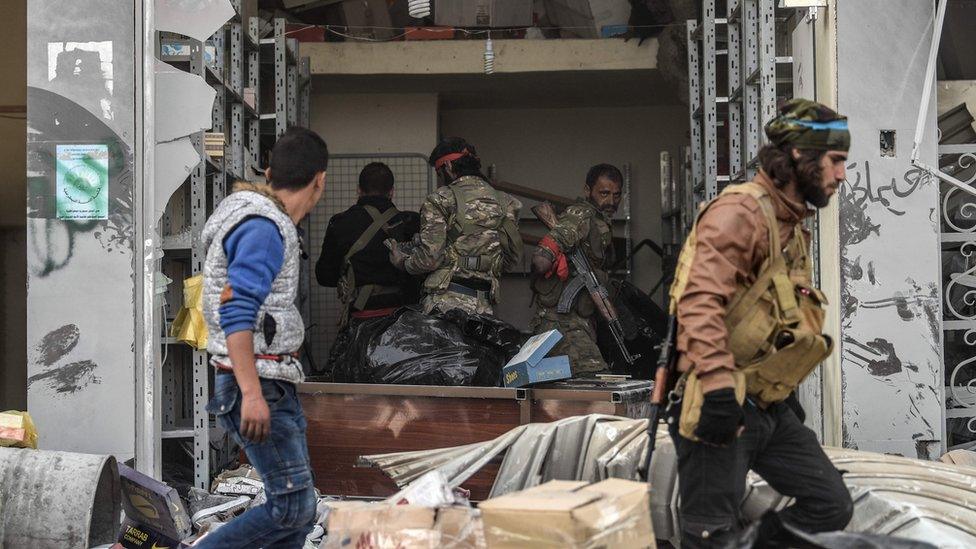
A prominent rebel leader called for those guilty of looting to be held accountable
Syrian opposition figures condemned the looting.
"The destruction of the Kawa Haddad statue... and the looting of shops and homes is morally deplorable," said Abdul Basset Sida, a Kurd who resigned from the opposition National Coalition after the Turkish offensive started.
Rebel commander Moataz Raslan later told the Associated Press that a unit had been formed to protect property and prevent further thefts, external.

What will Turkey do next?
By Mark Lowen, BBC Turkey Correspondent
"Turkey's victory day"; "We've written history in Afrin"; "Day of pride" - the verdict of the overwhelmingly pro-government Turkish media reflects the jingoism that's accompanied Turkey's two-month offensive.
So will Turkey now move on Manbij, a YPG-held town about 100km (60 miles) to the east? Turkish President Recep Tayyip Erdogan warns that it's next. But that's probably an attempt to pressure Washington to co-operate with Ankara in Manbij and evict the YPG.
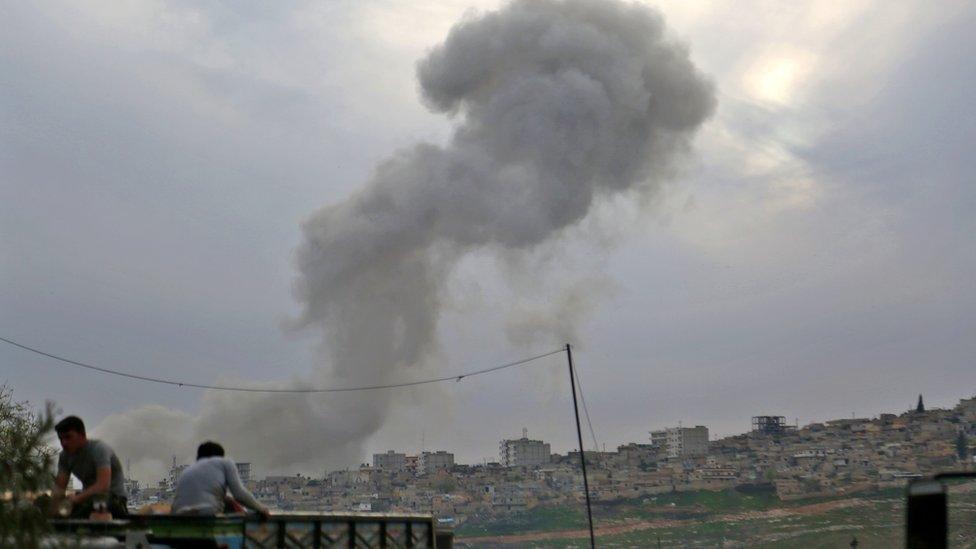
Kurdish leaders said resistance would "continue until every inch of Afrin is liberated"
Turkey announced such a deal prematurely last week; the US said it wasn't agreed. The removal of Rex Tillerson as secretary of state has delayed talks on the issue.
There will be pressure on Turkey to bring refugees from Afrin back swiftly. Some Kurds fear Turkey's aim is demographic change - replacing them with Arabs and Turkmen. Ankara denies it, but the Kurdish majority there might not take kindly to a permanent Turkish and Arab presence.

Earlier, Turkey's state-run Anadolu news agency reported that a bomb blast in a four-storey building in Afrin had killed seven civilians and four rebels overnight.
There was no confirmation from the SOHR, but it reported that at least 13 rebels had been killed and 25 wounded by mine explosions since Sunday.
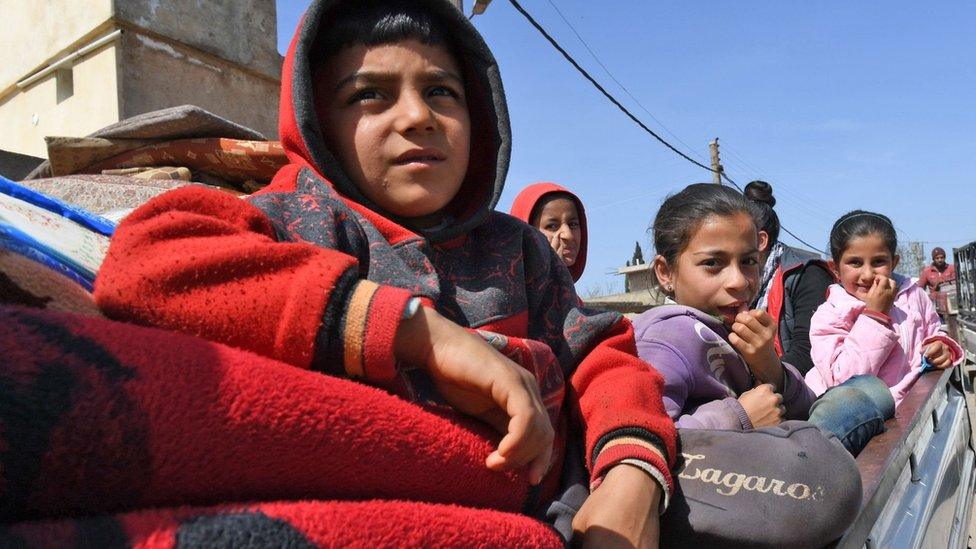
Some 220,000 civilians are believed to have fled Afrin in the past two months
Kurdish authorities said on Sunday that Afrin would "become a permanent nightmare" for Turkish-led forces and promised to retake the city.
Meanwhile, the International Committee of the Red Cross called for its personnel to be given greater access to Afrin, warning that the Turkish Red Crescent's credibility among Kurdish civilians was "close to zero".
The UN estimated on Sunday that about 100,000 people were still living inside the Afrin region, external, down from 323,000 in November. Some 98,000 are registered as displaced in neighbouring areas controlled by the Syrian government.
The SOHR says at least 289 civilians, including 43 children, have been killed in the battle for Afrin. However, the Turkish military denies targeting civilians.
It says more than 3,600 "terrorists" have been "neutralised" - a term it uses to describe those who have surrendered, been captured or killed. The YPG meanwhile says it has killed hundreds of Syrian rebels and Turkish soldiers.
- Published24 January 2018
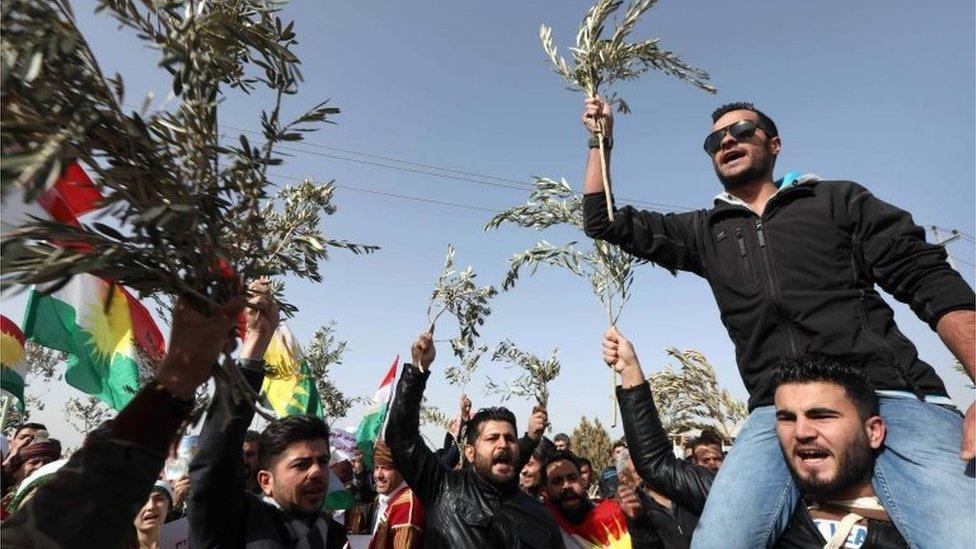
- Published2 February 2018
- Published22 January 2018
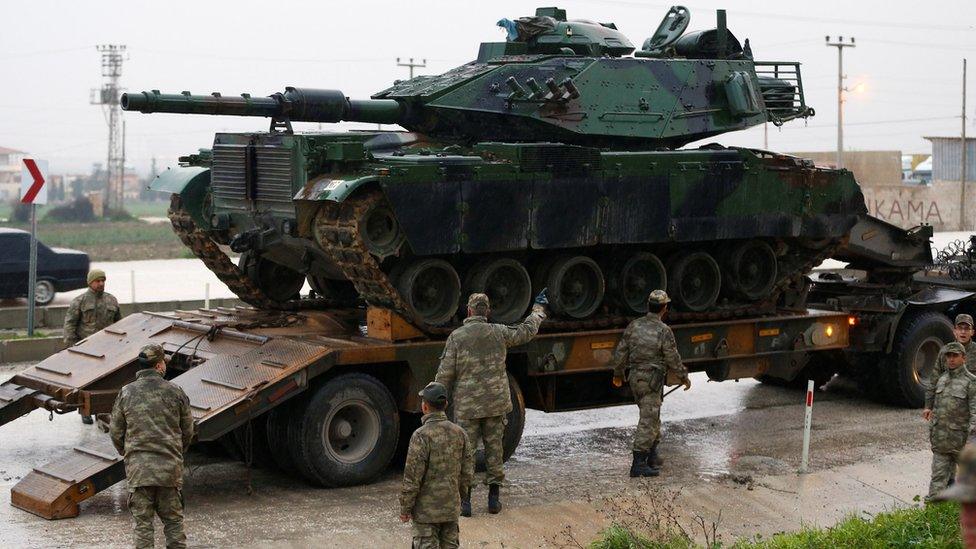
- Published15 October 2019
